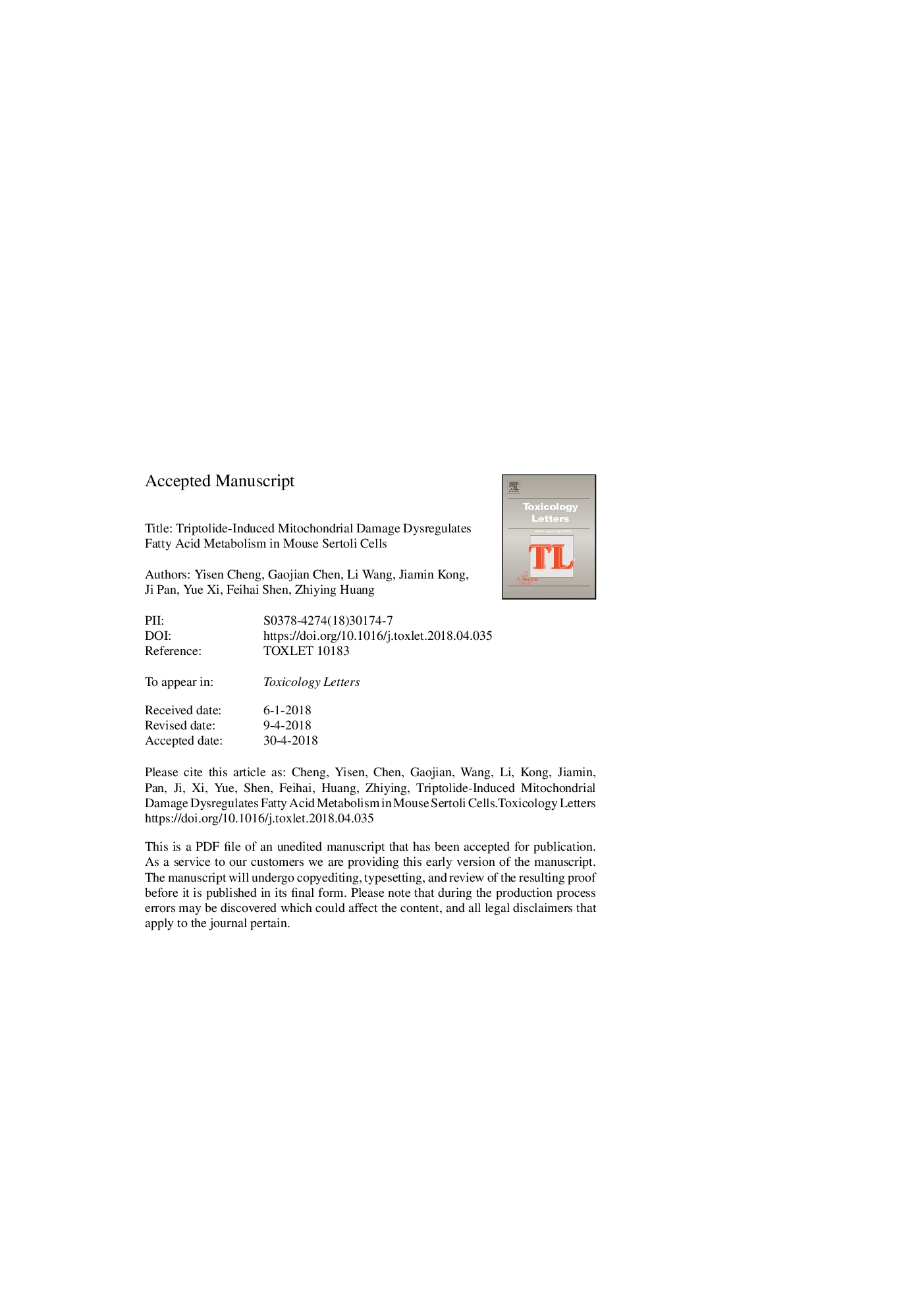| Article ID | Journal | Published Year | Pages | File Type |
|---|---|---|---|---|
| 8553219 | Toxicology Letters | 2018 | 47 Pages |
Abstract
Triptolide is a major active ingredient of tripterygium glycosides, used for the therapy of immune and inflammatory diseases. However, its clinical applications are limited by severe male fertility toxicity associated with decreased sperm count, mobility and testicular injures. In this study, we determined that triptoide-induced mitochondrial dysfunction triggered reduction of lactate and dysregulation of fatty acid metabolism in mouse Sertoli cells. First, triptolide induced mitochondrial damage through the suppressing of proliferator-activated receptor coactivator-1 alpha (PGC-1α) activity and protein. Second, mitochondrial damage decreased lactate production and dysregulated fatty acid metabolism. Finally, mitochondrial dysfunction was initiated by the inhibition of sirtuin 1 (SIRT1) with the regulation of AMP-activated protein kinase (AMPK) in Sertoli cells after triptolide treatment. Meanwhile, triptolide induced mitochondrial fatty acid oxidation dysregulation by increasing AMPK phosphorylation. Taken together, we provide evidence that the mechanism of triptolide-induced testicular toxicity under mitochondrial injury may involve a metabolic change.
Related Topics
Life Sciences
Environmental Science
Health, Toxicology and Mutagenesis
Authors
Yisen Cheng, Gaojian Chen, Li Wang, Jiamin Kong, Ji Pan, Yue Xi, Feihai Shen, Zhiying Huang,
